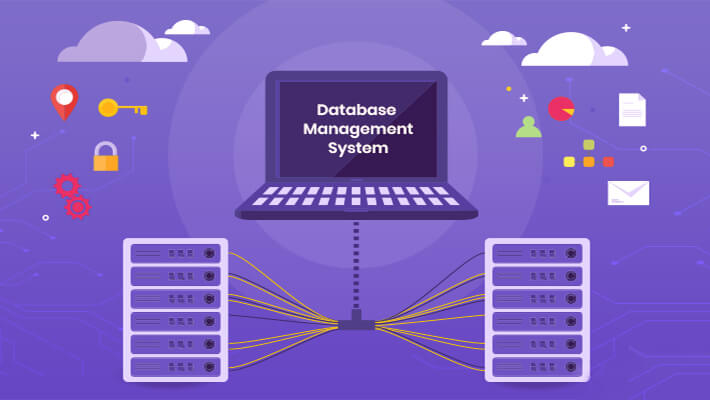Any modern network ACS needs a database, as it is essentially an information system designed for storage, processing, and analysis of information on events occurring at the protected object. The ACS should also store equipment settings, card codes, and personal data of users, access levels, and other necessary information.
Terminology
A common mistake made by many security specialists is to incorrectly use the term “database” (DB) instead of “database management system” (DBMS). Let’s get to the bottom of this.
Database
A database is a set of independent materials presented in an objective form, systematized in such a way that these materials can be found and processed by an electronic computer.
Database Management System (DBMS)
A set of software and linguistic tools for general or special purposes, providing control over the creation and use of databases.
That is, in simplified terms, the “database” – this is the data itself, presented in the form of a set of files on disks, which works “database management system” (DBMS) – a software product that has the means to create, populate, modify and search the database.
Developers of various applications, including developers of ACS, work with DBMS and choose DBMS for their needs.
Types of DBMS
There are currently a great many DBMSs, and they are classified according to various criteria. But we will not dwell in this article on the diversity of these types. We will omit perspective and exotic technologies such as object-oriented and hierarchical DBMS. The de-facto standard in modern information systems is relational DBMSs, where data are stored in tabular form.
Ways to Access the Database
- Client-Server DBMS
- File-Server DBMS
- Embedded DBMS
In Client-Server DBMS:
- All data processing is done in one place, on the server, in the same place where the (usually) data is stored.
- Only one server has access to the data files. One system is the DBMS itself.
- Client applications send requests to process and retrieve data from the DBMS and receive responses.
- Client applications do not have direct access to the data files.
At present, all industrial DBMSs are client-server applications.
In a File-Server DBMS:
- Applications share access to all database files (usually stored in some shared file storage) and process the data together.
- Each application processes the data independently.
At this point, file-server technology is considered outdated, and its use in large information systems is considered a disadvantage. The problem is that file-server DBMS does not have many of the advantages of client-server, such as data caching, the parallelism of queries, high performance, and have a number of drawbacks (difficulties in maintaining database integrity, recovery, locks, etc.), which in turn leads to reduced reliability and performance. The state of the database in the file DBMS must be constantly monitored, and its “treatment” operations should be carried out with the help of built-in or third-party utilities.
Built-in DBMS
- Supplied as part of a ready-to-use software product, requiring no independent installation.
- They are intended for local storage of application data and are not intended for collective use in a network.
The embedded free SQLite DBMS is widely used in the famous Android mobile OS developed by Google and many mobile applications.
Recommendations
- When selecting an ACS, pay attention to which DBMS is supplied with the system.
- If you operate an ACS, find out which RDBMS it uses.
- Evaluate the data traffic and load in your system to determine the required DBMS server hardware resources and the required DBMS edition (consult your access control manufacturer if necessary)
- If your ACS uses the Express version of Microsoft SQL Server or Oracle, you need to ask yourself: “How much of the free database capacity will be enough for us?”.
- Use only the best database management tools to work comfortably and save time with your database.
- Set up database backups by means of ACS or by means of DBMS and check their implementation regularly.
- Find a DBMS specialist (administrator) who can be contacted in case of database damage, find out from the technical support of the ACS manufacturer the possibility of providing such services.
Follow Techdee for more informative articles and tips!
